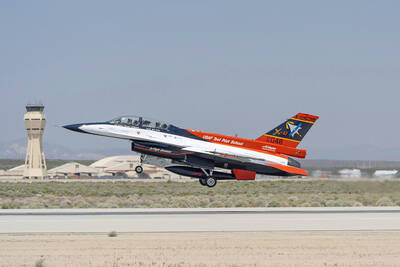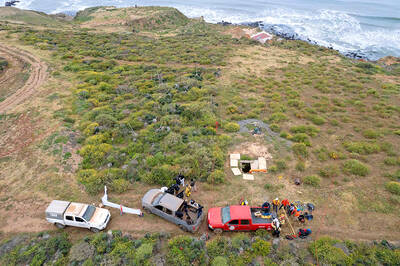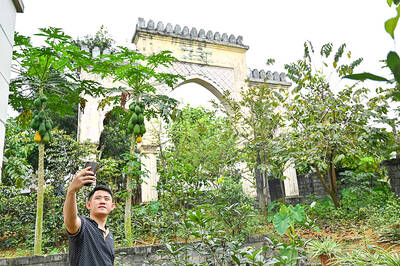In May 1963, President John F. Kennedy and his aides discussed the feasibility of using nuclear weapons in the event China attacked India for a second time, according to newly declassified recordings released Thursday by the John F. Kennedy Presidential Library and Museum in Boston.
Over the crackle of the decades-old tapes, Kennedy and his advisers can be heard discussing how to prevent India from becoming, in the popular idiom of the day, another domino to fall to Communism.
Robert McNamara, Kennedy's defense secretary, is heard to say: "Before any substantial commitment to defend India against China is given, we should recognize that in order to carry out that commitment against any substantial Chinese attack, we would have to use nuclear weapons. Any large Chinese Communist attack on any part of that area would require the use of nuclear weapons by the US, and this is to be preferred over the introduction of large numbers of US soldiers."
McNamara said in a telephone interview on Thursday that he could not remember the conversation, "but it is probably correct."
Minutes later, after hearing from McNamara and two other advisers, Kennedy says, "We should defend India, and therefore we will defend India" if attacked. It is not clear from the tapes whether Kennedy was speaking of using nuclear weapons or of defending India in more conventional terms.
"The context is that Kennedy was very, very pro-India," said Stephen Cohen, a senior fellow in foreign policy studies at the Brookings Institution in Washington and an expert on South Asian security. "He saw India as a natural balance to China," Cohen said of Kennedy. "That was not true of his advisers. My guess is that they didn't want to see American ground troops get involved in a war."
Cohen recalled the political climate of the time and suggested that Kennedy's aides might have had another motive for bringing up the possible use of nuclear weapons. "We were tied up in Korea; we were worried about the Russians," he said. "And, conceivably, they said `nuclear' because they didn't want him to do anything for India; that this was a way of raising the stakes so high as to make it not an option."
Indian analysts said they were stunned by the disclosure.
"I do not recollect in the public domain such an explicit commitment to nuke China," said C. Uday Bhaskar, a commodore in the Indian Navy who heads a research organization in New Delhi financed by the Indian Defense Ministry. "I'm sure it will have antennae up in China."
"Obviously, there are resonances between 1963 and 2005," said Sugata Bose, a professor of South Asian history at Harvard University. "How to contain China is the common thread."
In 1963, the US believed that China might have "expansionist designs," Bose said in a telephone interview from Calcutta, while in 2005 "the United States knows the Chinese leadership is consciously pragmatic and is eager to avoid the perception of being expansionist."
At the same time, Bose said, "The reality is that China is a much stronger power today, because the economic dimension has been added to the military and strategic one."
The deliberations in May 1963 are especially striking in light of their timing just seven months after two events that shook geopolitics: the Cuban missile crisis and an invasion of India by China, which sought to acquire disputed border territories.
In one section of the tapes, Gen. Maxwell Taylor, then chairman of the Joint Chiefs of Staff, is heard telling Kennedy: "This is just one spectacular aspect of the overall problem of how to cope with Red China politically and militarily in the next decade. I would hate to think that we would fight this on the ground in a non-nuclear way."
Also on the tapes, Dean Rusk, Kennedy's secretary of state, counsels that the use of nuclear weapons would have to have support from America's allies. "I think we would be hard pressed to tell our own people why we are doing this with India when even the British won't do it or the Australians won't do it and the Canadians won't do it," Rusk says. "We need to have those other flags flying on these joint enterprises."
George Ball, then an under secretary of state, warned Kennedy that the use of nuclear weapons against China could create a perception of American hostility toward East Asians.
"If there is a general appearance of a shift in strategy to the dependence on a nuclear defense against the Chinese in the Far East, we are going to inject into this whole world opinion the old bugaboo of being willing to use nuclear weapons against Asians," Ball says.

With the midday sun blazing, an experimental orange and white F-16 fighter jet launched with a familiar roar that is a hallmark of US airpower, but the aerial combat that followed was unlike any other: This F-16 was controlled by artificial intelligence (AI), not a human pilot, and riding in the front seat was US Secretary of the Air Force Frank Kendall. AI marks one of the biggest advances in military aviation since the introduction of stealth in the early 1990s, and the US Air Force has aggressively leaned in. Even though the technology is not fully developed, the service is planning

INTERNATIONAL PROBE: Australian and US authorities were helping coordinate the investigation of the case, which follows the 2015 murder of Australian surfers in Mexico Three bodies were found in Mexico’s Baja California state, the FBI said on Friday, days after two Australians and an American went missing during a surfing trip in an area hit by cartel violence. Authorities used a pulley system to hoist what appeared to be lifeless bodies covered in mud from a shaft on a cliff high above the Pacific. “We confirm there were three individuals found deceased in Santo Tomas, Baja California,” a statement from the FBI’s office in San Diego, California, said without providing the identities of the victims. Australian brothers Jake and Callum Robinson and their American friend Jack Carter

Le Tuan Binh keeps his Moroccan soldier father’s tombstone at his village home north of Hanoi, a treasured reminder of a man whose community in Vietnam has been largely forgotten. Mzid Ben Ali, or “Mohammed” as Binh calls him, was one of tens of thousands of North Africans who served in the French army as it battled to maintain its colonial rule of Indochina. He fought for France against the Viet Minh independence movement in the 1950s, before leaving the military — as either a defector or a captive — and making a life for himself in Vietnam. “It’s very emotional for me,”

UNDER INVESTIGATION: Members of the local Muslim community had raised concerns with the police about the boy, who officials said might have been radicalized online A 16-year-old boy armed with a knife was shot dead by police after he stabbed a man in the Australian west coast city of Perth, officials said yesterday. The incident occurred in the parking lot of a hardware store in suburban Willetton on Saturday night. The teen attacked the man and then rushed at police officers before he was shot, Western Australian Premier Roger Cook told reporters. “There are indications he had been radicalized online,” Cook told a news conference, adding that it appeared he acted alone. A man in his 30s was found at the scene with a stab wound to his back.